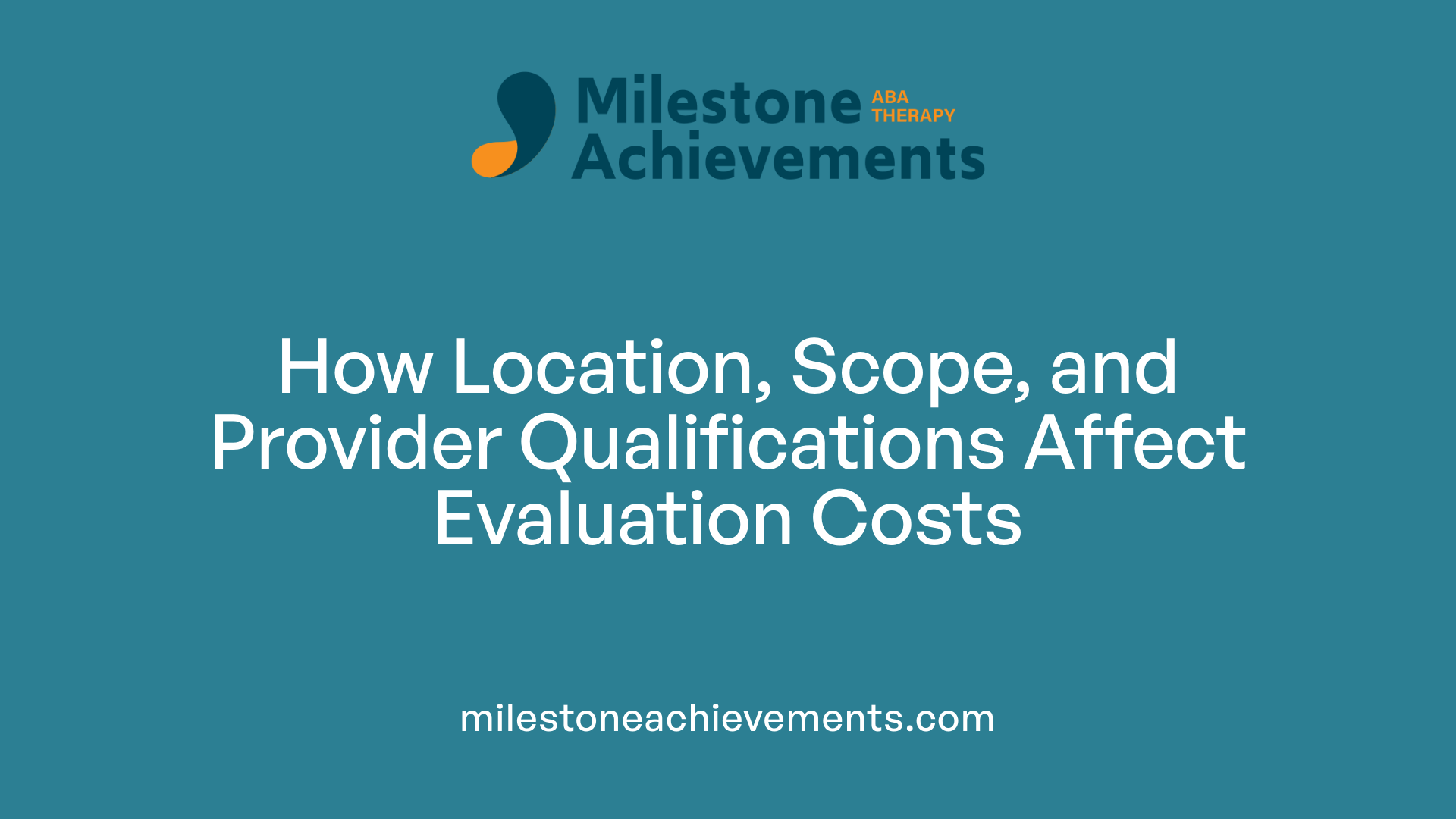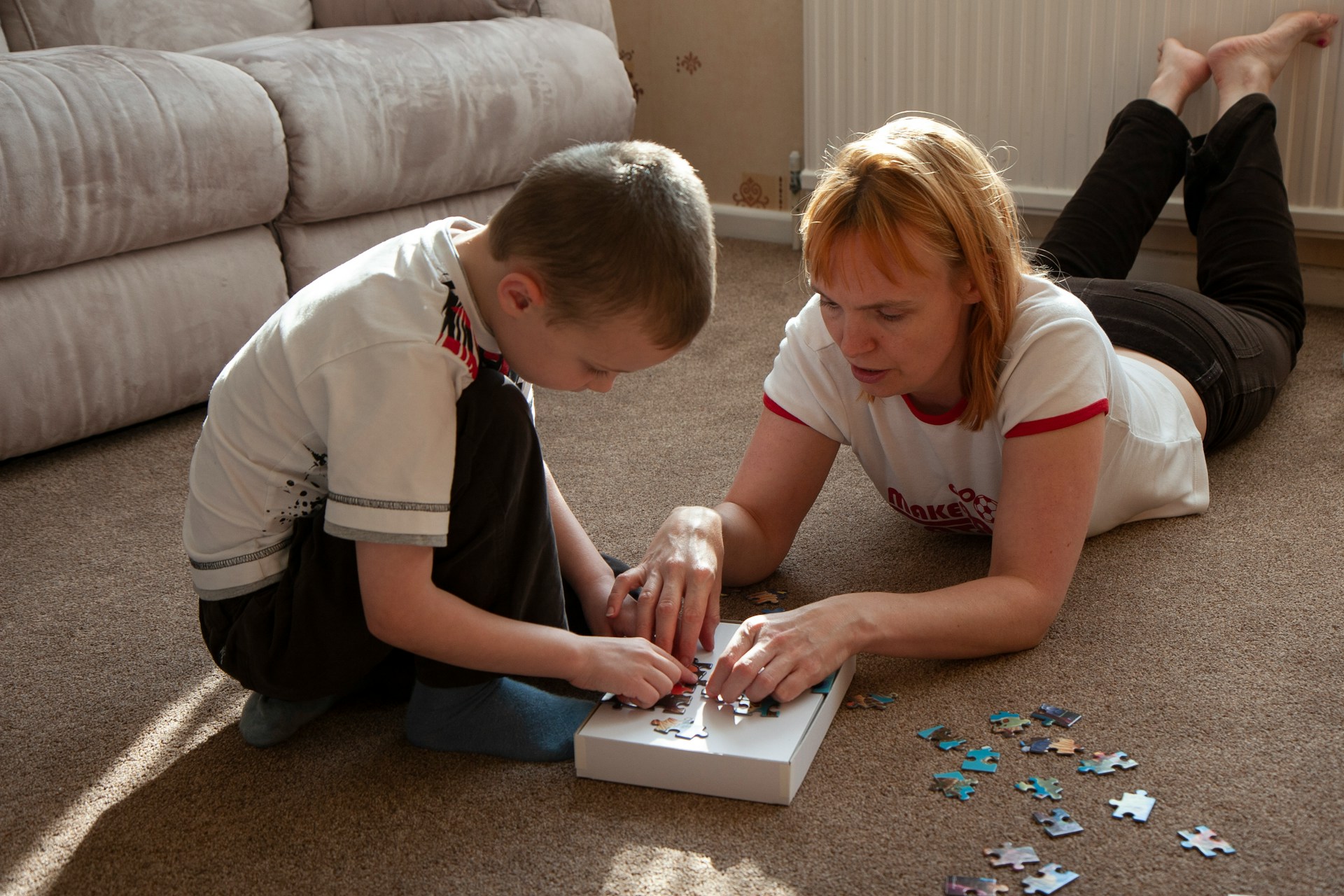
How Much Does An Autism Evaluation Cost?
Understanding the Financial Aspects of Autism Diagnosis
Navigating the Costs of Autism Evaluation
Deciphering the expenses associated with autism evaluation is essential for families and adults seeking diagnosis and intervention. Costs can vary significantly depending on the scope of assessment, location, provider expertise, and insurance coverage. This article explores the typical components of autism assessments, factors influencing their costs, and strategies to manage financial expenses effectively.
Components and Types of Autism Assessments
 Autism assessments usually involve several comprehensive steps to accurately understand an individual's developmental profile. These assessments often combine developmental and behavioral evaluations, alongside input from caregivers. One of the critical components is parent and caregiver interviews, such as the Autism Diagnostic Interview-Revised (ADI-R). This helps gather detailed information about early developmental history and current behaviors.
Autism assessments usually involve several comprehensive steps to accurately understand an individual's developmental profile. These assessments often combine developmental and behavioral evaluations, alongside input from caregivers. One of the critical components is parent and caregiver interviews, such as the Autism Diagnostic Interview-Revised (ADI-R). This helps gather detailed information about early developmental history and current behaviors.
Direct observation methods, particularly standardized tools like the Autism Diagnostic Observation Schedule (ADOS-2), play a vital role. These observations are conducted in a controlled setting to assess social interactions, communication, and repetitive behaviors typical of autism.
Standardized testing is also central to autism assessments. These tests measure cognitive abilities, language skills, and social functioning. Examples include intelligence tests such as the Wechsler scales, language assessments like the CELF-5, and social skills evaluations like the Social Responsiveness Scale.
Additionally, some assessments include hearing screenings, genetic testing, and neurological examinations to rule out other causes or identify underlying medical conditions. These supplementary tests help tailor interventions specific to the individual's needs.
Clinicians rely heavily on diagnostic criteria from the DSM-5 or ICD-11, which focus on persistent deficits in social communication and restricted, repetitive behaviors. The assessment process also considers motor skills, sensory sensitivities, and neurological health.
In practice, the assessment may involve various activities: developmental scales like the Mullen or WPPSI, language tests tailored for different age groups, and sometimes motor or sensory evaluations. An initial evaluation might cost between $800 and $3,000, but comprehensive assessments, including genetic and neurological testing, can be more expensive.
Overall, the goal of these assessments is to develop a detailed profile of the child's or adult's strengths and challenges, guiding effective intervention and support strategies.
Factors Impacting the Cost of Autism Evaluations
 The expenses associated with autism evaluations vary based on several important factors. Firstly, the type and scope of assessment significantly influence the cost. Brief evaluations, which produce a 1-2 page report, typically cost less—around $800 to $900—whereas full, comprehensive evaluations with detailed reports may range from $975 to over $1,075. More extensive assessments that include neuropsychological testing and additional diagnostic tools can cost up to $5,000.
The expenses associated with autism evaluations vary based on several important factors. Firstly, the type and scope of assessment significantly influence the cost. Brief evaluations, which produce a 1-2 page report, typically cost less—around $800 to $900—whereas full, comprehensive evaluations with detailed reports may range from $975 to over $1,075. More extensive assessments that include neuropsychological testing and additional diagnostic tools can cost up to $5,000.
Provider qualifications also matter. Specialist clinicians such as neuropsychologists or experienced psychologists tend to charge higher fees, often between $2,000 and $5,000, reflecting their expertise. Conversely, clinics offering standard evaluations or less specialized staff may have lower rates.
Location plays a significant role as well. In major urban areas, particularly cities like Los Angeles or San Francisco, costs can be higher—sometimes exceeding $3,000 to $10,000—due to higher living and operational costs. In contrast, rural or less expensive regions often offer more affordable options.
The process complexity and tools used during assessment impact the overall price. Evaluations that include standardized tests like the Autism Diagnostic Observation Schedule (ADOS), cognitive or language assessments, and multiple follow-up sessions tend to cost more. The assessment’s duration, the number of appointments, and whether additional assessments such as ADHD testing are included contribute to the final cost.
Insurance coverage is crucial in managing expenses. While many providers do not accept insurance directly, they may provide receipts for reimbursement. Some plans partially cover testing, reducing out-of-pocket costs to copays typically ranging from $15 to $100, depending on the insurance plan.
Additional services—such as follow-up feedback sessions, therapy recommendations, or related assessments—add to the total costs. For example, follow-up consultations and supplementary testing can increase expenses by several hundred dollars.
Lastly, the mode of evaluation influences pricing. Telehealth options, available in certain states, often provide more affordable alternatives compared to in-person assessments, reducing costs associated with travel and facility fees.
In summary, autism evaluation costs depend on assessment scope, provider expertise, geographic location, insurance support, supplementary services, and the format of delivery. Families should consider these factors and investigate available financial aid or sliding scale options to manage expenses effectively.
Average Costs for Autism Evaluation Without Insurance
The expense of an autism assessment without insurance varies widely, generally falling between $1,200 and $3,000. Basic screenings, which are simple checklists or informal assessments, tend to be less expensive, sometimes costing from $0 up to $500. In contrast, comprehensive evaluations conducted by specialists can reach $2,000 or more, especially when they include extensive testing, behavioral observation, and detailed reports.
The type of assessment significantly impacts the cost. For instance, a brief 1-2 page report might cost around $800 to $900, whereas a full diagnostic evaluation with detailed documentation can cost from $975 up to $5,000, depending on the provider and location. Telehealth evaluations, especially those tailored for adults, typically cost around $500 to $1,075 for a full assessment, but prices vary with additional services.
Location plays an important role in pricing. Urban areas, such as Los Angeles or San Francisco, often have higher fees—sometimes ranging from $3,000 to $10,000. In contrast, smaller cities or clinics may charge lower rates, averaging between $1,000 and $3,000.
The choice of provider also affects the cost. Clinics affiliated with hospitals or experienced specialists tend to charge higher fees but offer more comprehensive testing. Some clinics in the US list costs like $900, $1,800, or $2,200 for full evaluations.
Families seeking affordability can explore financing options such as payment plans or sliding scale fees. Many clinics offer these plans to make assessments more accessible. Additionally, some organizations, grants, and state programs provide financial assistance, helping families reduce their out-of-pocket expenses.
In summary, while the typical range for autism evaluations without insurance is about $1,200 to $3,000, the actual costs can fluctuate significantly based on location, provider expertise, and evaluation scope. It is advisable to contact providers directly to get precise estimates and inquire about possible financial support.
Insurance Coverage and Financial Assistance Options
Many families and individuals pursuing autism evaluations often wonder about the extent of insurance coverage available for such services. Typically, insurance plans can cover autism testing and diagnosis, but the specifics depend heavily on the state and the insurance provider. In some states, laws mandate that insurance companies provide at least partial coverage for autism-related evaluations, including assessments for autism and ADHD, as well as treatments such as behavioral therapy.
To determine what coverage is available, it’s important to verify with the insurance provider directly. Families should review their policy details and possibly contact customer service to understand the scope of inpatient, outpatient, and diagnostic testing coverage. Payment receipts and detailed documentation from evaluations can often be used later for reimbursement from insurance companies, especially for out-of-network providers.
Medicaid and private insurance policies vary widely. Medicaid typically covers a broad range of diagnostic and treatment services for eligible individuals, although coverage limits and requirements can differ between states. Private insurance plans may offer varying levels of coverage, often with some copayments or deductibles, but key details such as covered assessments and their costs should be clarified beforehand.
In addition to insurance, there are other financial aid options available. Grants from organizations like the United Healthcare Children's Foundation, local non-profits, and state programs can help offset costs. Some clinics and providers offer sliding scale fees based on income, making diagnostics more accessible.
Insurance laws and mandates also influence the costs and coverage for autism assessments. Many states have enacted legislation requiring health plans to cover autism diagnosis and intervention, which can reduce out-of-pocket expenses significantly. Nonetheless, families should review their specific insurance policies and understand their rights to appeal denied claims.
In summary, understanding insurance coverage involves checking individual policy details, utilizing receipts for reimbursements, and exploring additional financial assistance. Being proactive in this process ensures access to necessary diagnostic evaluations without undue financial burden.
Table of Autism Testing Costs and Coverage Strategies
| Cost Range | Typical Insurance Copays | Coverage Type | Notes |
|---|---|---|---|
| $0 - $500 | $15 - $25 | Partial | Depending on insurer and state mandates |
| $800 - $5,000 | Varies | Full or partial | Check specific policy details |
| Out-of-pocket | Usually $1,000 - $3,000 | Self-pay options | For uninsured or limited coverage |
Families should research local laws and policies to ensure they access all available support for autism evaluation and services.
For more detailed guidance, searching for "Navigating insurance and financial aid for autism evaluation" can provide helpful resources and tips.
What to Expect During the Evaluation Process and Sessions
What should I expect during an autism evaluation session?
An autism evaluation involves several steps designed to thoroughly understand an individual's developmental and current functioning. Typically, it begins with pre-evaluation paperwork, where you will provide detailed medical, developmental, and psychological history. This helps clinicians understand your background and prepare for the assessment.
During the actual sessions, clinicians will conduct interviews with the individual and often with caregivers or family members to gather comprehensive information. These interviews focus on developmental milestones, social behaviors, communication skills, and any signs of repetitive behaviors or sensory sensitivities.
Assessment sessions may include observations of social interactions, structured testing, and standardized assessments such as the Autism Diagnostic Observation Schedule (ADOS). For children, the team might observe play and communication, review reports from teachers or caregivers, and assess language and motor skills. For adults, assessments may involve questionnaires, cognitive testing, and interviews that explore early childhood experiences.
The process usually spans multiple appointments, each lasting around 1-2 hours, and may be spread over several weeks. Additional testing, such as IQ or language assessments, can be part of the evaluation.
Following the assessment, a detailed report is provided. This document explains whether the individual meets criteria for autism and offers recommendations for intervention, support, or further evaluations. Importantly, evaluations are tailored for different age groups—what’s assessed in an adult differs from children, especially considering adults may have masked or subtle signs of autism.
The cost for each phase varies; for example, a full evaluation with report can range from $975 to over $2,200 depending on the provider. Some clinics also offer brief assessments at lower costs, typically around $800 to $900.
Overall, the goal of the evaluation process is to deliver a clear understanding of an individual’s needs, guiding appropriate supports and interventions.
Summing Up the Financial Landscape of Autism Evaluations
Understanding the costs associated with autism evaluation is crucial for planning and accessing appropriate services. While costs can vary widely—from informal screenings costing up to $500 to comprehensive assessments reaching $5,000—families can explore insurance options, financial assistance programs, and sliding scale services to make diagnosis more accessible. Recognizing the components involved in assessment, the factors influencing expenses, and what to expect during the process helps individuals and families navigate their journey to a clearer understanding of autism.
References
- Diagnostic and affirming Autism assessments for adults
- Our Fees | Sachs Center | Autism & ADHD Testing and Treatment
- Autism Screening Cost without Insurance | Mira Health
- How Much Does an Autism Evaluation Cost? - Astra ABA
- What to expect when getting an adult ASD diagnosis | Autism Speaks
- Understanding Autism Diagnosis Expenses and Insurance
- What You Need to Know About How Much It Costs to Get Tested for ...


Partner with us on your child's journey
Milestone Achievements offers evidence-based ABA therapy to help children with autism reach their full potential. Together we’ll set meaningful goals and celebrate progress every step of the way.
Start ABA Services Today





